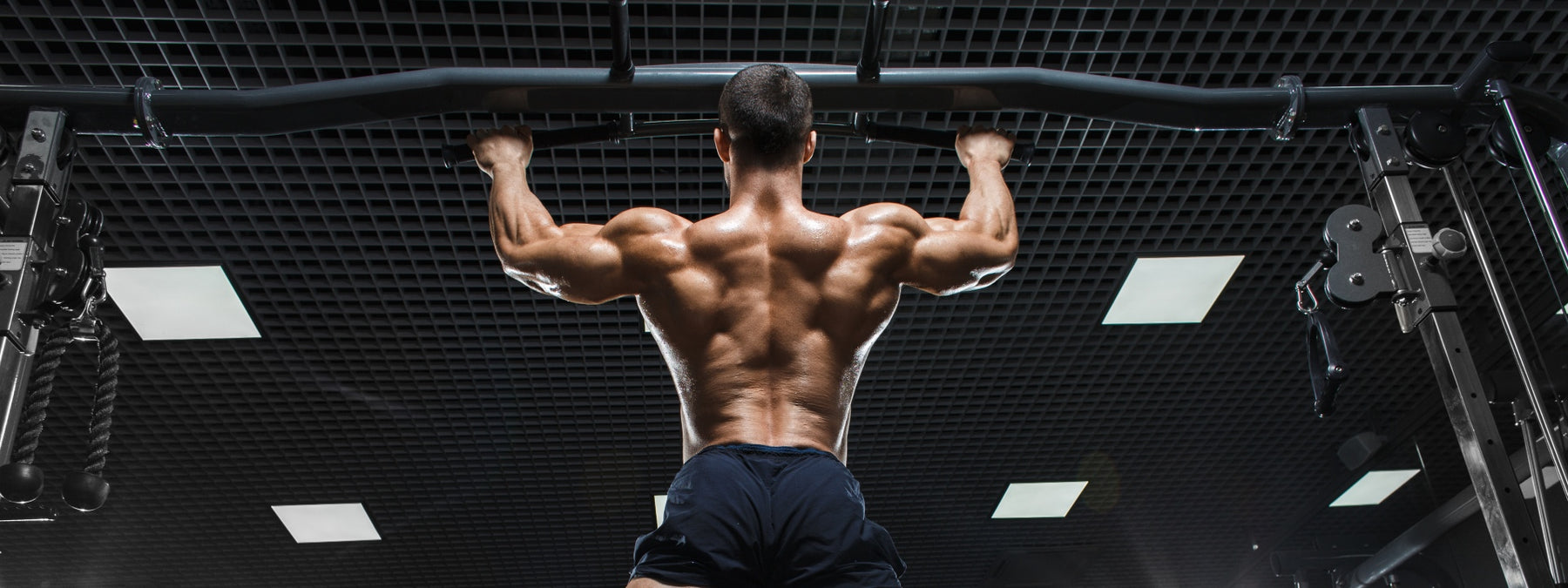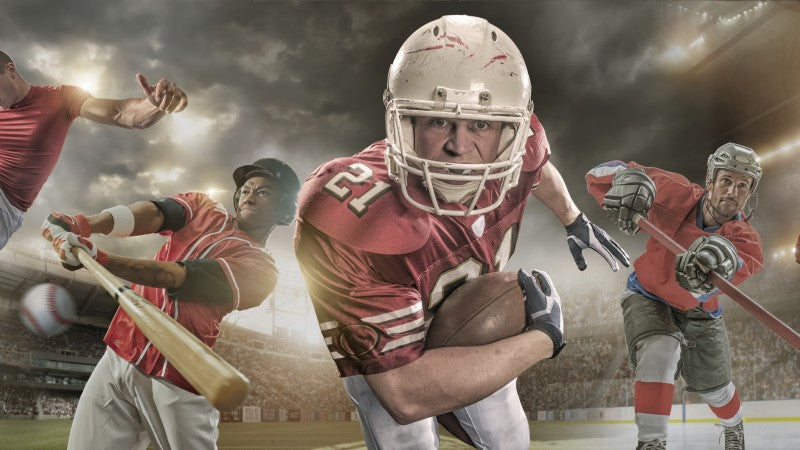
3 Ways to Pay the Price and Get Training & Gym Results
He paid the price with practice.
The only advantage he had growing up was that he was tall. That's it. He had no natural talent. He was slow and couldn?t jump.
So, he developed his own training plan to develop his skill for the game. Three and a half hours of practice on Sunday, eight hours every Saturday and three hours a day during the summer. He kept an unbelievably strict schedule to his training time.
He once went on a family cruise vacation. He found two corridors below the ship where he could practice his ball handling. All this practice wasn?t necessarily fun. But to Bill Bradley, this practice was fueled with purpose.
 In order for him to realize his potential of becoming the best basketball player he could be, Bill Bradley knew that boredom was part of the process; persevering though the mundane. This is what every athlete, writer, businessman and artist understands. Boredom is part of the journey.
In order for him to realize his potential of becoming the best basketball player he could be, Bill Bradley knew that boredom was part of the process; persevering though the mundane. This is what every athlete, writer, businessman and artist understands. Boredom is part of the journey.And when you're on your quest and you understand this, you get a weird satisfaction out it. don't expect anyone to understand you either, just keep going.
Thousands of people are searching about how to improve their health and fitness. If you're reading this, you're probably one of them. Magazines, blogs, videos, seminars, there's no shortage of information on the "how to" side of things. But regardless of what your interest happens to be; strength, bodybuilding, powerlifting or CrossFit, the common denominator of succeeding in any of these areas rely on your ability to pay the price if you want the best results.
If you're going all in, here are three ways to set yourself up to be willing to pay the price in order to get the results you want.
3 Ways to Get Better Gym, Training & Physique Results
1. Reprogram your mind
As kids when we get punished for making a mistake, the consequence is often linked to doing some type of "work." Take the trash out, do the dishes, and mowing the lawn are some common consequences of bad behavior.As we grow up, this programs our mind to think that work equates to punishment. Then, we see our jobs as burdens instead of opportunities.
What if we turned that mindset around and related work to reward?
As a child, Arnold Schwarzenegger?s father had him do push-ups and sit-ups in order to "earn" his breakfast. What Arnold didn't know at the time was that his father was wiring his brain to make the connection between work and reward. He wanted Arnold to believe that hard work was a good thing, and if we worked hard, reward would follow.

As we grow up, our mind in programmed to equate work to punishment. Then, we see our jobs as burdens instead of opportunities.As a child that reward was the most primal reward of all, getting food. From that time on, Arnold carried this behavioral concept into his massive success in bodybuilding, acting, business, and politics.
This mentality of viewing work as a consequence for making mistakes is widespread in the fitness world. I have to work out because I ate that cheesecake. I have to eat healthy because my doctor told me to do so. Rather than linking exercise and good eating to reward, many have conditioned themselves to think that hitting the gym or following a good diet is a punishment. It's not. You've just made it that way.
Training can yield reward or it can feel like punishment. Eating well can yield reward or it can feel like punishment. The difference lies in your perception of work.
2. Practice like an Olympian
The average Olympian practices for four hours a day, 310 days a year for a minimum of six years BEFORE succeeding. Now, that is an impressive statistic but it may not be surprising to you.What you may not be aware of is how they practice. The way Olympians differ in their approach to practice is where the magic happens. They not only invest more time into practice in comparison to average talent, but they spend hours of intense focus on deliberate practice.
Rather than just showing up, going through the motions and punching the clock, they practice to reach specific objectives.
This kind of practice is brutally mundane and rarely pleasurable. But it's this ability to practice in a deliberate manner towards a specific goal that sets them apart from others who are just pretty good at something. Instead of practicing for fun, they practice consistently with purpose; over a long period of time.
Consider this example from Robert, trainer for Team USA.
 I was invited to Las Vegas to help Team USA with their conditioning before they headed off to London. I?ve had the opportunity to work with Carmelo Anthony and Dwyane Wade in the past, but this would be my first interaction with Kobe.
I was invited to Las Vegas to help Team USA with their conditioning before they headed off to London. I?ve had the opportunity to work with Carmelo Anthony and Dwyane Wade in the past, but this would be my first interaction with Kobe.
The night before the first scrimmage, I had just watched Casablanca for the first time and it was about 3:30 AM.
A few minutes later, I was in bed, slowly fading away, when I heard my cell ring. It was Kobe. I nervously picked up.
"Hey, uhh, Rob, I hope I'm not disturbing anything right?"
"Uhh, no. what's up Kob?"
"Just wondering if you could help me out with some conditioning work, that's all."
I checked my clock. 4:15 AM.
"Yeah sure, I'll see you in the facility in a bit."
It took me about twenty minutes to get my gear and get out of the hotel. When I arrived and opened the room to the main practice floor, I saw Kobe. Alone. He was drenched in sweat as if he had just taken a swim. It wasn't even 5:00 AM.
We did some conditioning work for the next hour and fifteen minutes. Then, we entered the weight room, where he would do a multitude of strength training exercises for the next 45 minutes. After that, we parted ways. He went back to the practice floor to shoot. I went back to the hotel and crashed. Wow.
I was expected to be at the floor again at about 11:00 AM.
I woke up feeling sleepy, drowsy, and pretty much every side effect of sleep deprivation. (Thanks, Kobe.) I had a bagel and headed to the practice facility.
This next part I remember very vividly. All of the Team USA players were there. LeBron was talking to Carmelo and Coach Krzyzewski was trying to explain something to Kevin Durant. On the right side of the practice facility Kobe was by himself shooting jumpers.
I went over to him, patted him on the back and said, "Good work this morning."
"Huh?"
"Like, the conditioning. Good work."
"Oh. Yeah, thanks Rob. I really appreciate it."
"So when did you finish?"
"Finish what?"
"Getting your shots up. What time did you leave the facility?"
"Oh, just now. I wanted 800 makes. So yeah, just now."

If you want results, find a way to pay the price no matter what obstacles come your way.At first glance you're impressed. Kobe shows up at 4:30am to start his conditioning, then hits the weight room at 6, then works on his jumper for about 4 hours. I thought the same thing. Until I read it again.
At the end of the dialogue, Kobe says "Oh, just now. I wanted 800 makes." This is deliberate practice. He simply just didn't show up to shoot 800 jumpers. He came to make 800 jumpers.
You may not want to be an Olympian. Understandable. But that doesn't void the principle of deliberate practice in your own life. You need to be world class at managing your own health and fitness.
In order to do that you've got to be willing to pay the price with deliberate practice. Where in your own life do you need to be more deliberate in order to produce better results?
3. Know that there will be a dip
You're going to want to quit.In any pursuit of mastery, especially in the space of health and fitness, people quit. Seth Godin, the author of The Dip (a little book that teaches you when to quit), has coined the term "The Dip." Even though his approach is from a business and marketing perspective, it's relevant to health and fitness.
The Dip is the long slog between starting and mastery.
It's the 15th mile in a marathon, you're alone and your whole body hurts.
It's the 6th week in a fat loss plan, and you haven't seen any results.
It's when it makes sense to give up.
But when you get here, it's important to do everything you can to remind yourself that the reason The Dip exists, is the exact reason why you set out to achieve the goal. Getting to 6% body-fat, squatting 500 lbs, finishing the race in the top 10% in your age group, these accomplishments are scarce. Not many people can do it, much less attempt it.
That's why it's valuable to you. The scarcity of these goals give them value. If The Dip didn't exists, there would be no scarcity. The Dip is the key to your success.
If you want results, be willing to pay the price by asking yourself this question:
"Is the pain of The Dip worth the benefit of the light at the end of the tunnel?"
Editor's note: Make sure to fuel your workouts, training and recovery with a high quality whey protein. MTS Machine Whey sets the standard for quality in the industry, and comes in 10 amazing flavors. Learn more by clicking here.